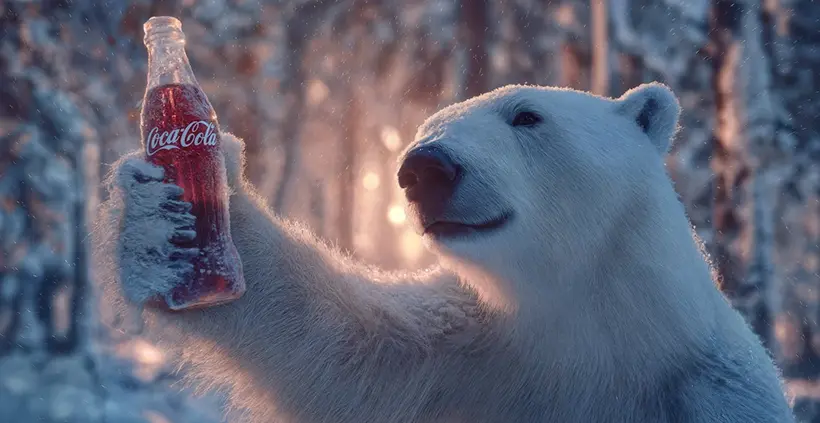Coca Cola AI Generated Ad

In November 2024, Coca-Cola introduced a groundbreaking series of AI-generated Christmas advertisements, aiming to merge cutting-edge technology with the warmth of holiday nostalgia. These ads, produced in partnership with AI studios Secret Level, Silverside AI, and Wild Card, leveraged advanced generative AI tools like Leonardo, Luma, Runway, and Kling. Their goal was to reimagine the iconic 1995 "Holidays Are Coming" campaign, known for its glowing red delivery trucks navigating picturesque snowy landscapes, an enduring symbol of festive cheer. The AI-driven reinterpretation featured similar imagery, attempting to honor the legacy of the original.
However, the reception was far from merry. Both critics and consumers criticized the campaign, describing it as "lifeless" and "bereft of true creativity." The AI visuals, while polished, were widely seen as lacking the emotional warmth and authenticity that defined the original ad. Notably, the absence of close-up human imagery - likely a precaution against the eerie "uncanny valley" effect - resulted in a noticeable void of human connection, a critical component of effective holiday advertising.
The creative community did not hold back in its critique. Alex Hirsch, creator of *Gravity Falls*, openly condemned the campaign, arguing that Coca-Cola's reliance on AI overshadowed the invaluable contributions of human artists. This concern echoed across social media, where users lamented the potential loss of jobs and creativity to AI technologies.
Is Generative AI Replacing Humans?
Coca-Cola defended its approach, emphasizing the collaborative nature of the project. A company representative explained, "This initiative combined human storytelling with the innovative power of generative AI to explore new ways of engaging our audience." They highlighted the efficiency gains, noting that AI dramatically reduced production timelines. Pratik Thakar, Coca-Cola's Vice President and Global Head of Generative AI, stated, "It’s less about cost and more about speed - traditional production methods would have taken much longer."
Despite these explanations, the controversy sparked a broader conversation about the role of AI in creative industries. While AI enables rapid and cost-effective content creation, its use in domains traditionally driven by human creativity raises concerns about quality, authenticity, and ethical implications. Many critics argued that the AI-generated ads failed to capture the emotional resonance and depth that consumers associate with Coca-Cola's holiday branding.
This incident serves as a cautionary example for brands navigating AI integration in creative processes. It underscores the importance of balancing technological advancement with the preservation of human artistry, particularly in emotionally charged campaigns. The backlash highlighted a consumer preference for authentic and heartfelt storytelling, challenging brands to ensure AI complements rather than replaces human creativity.
Ultimately, Coca-Cola's venture into AI-generated holiday advertising illustrates the complexities of blending artificial intelligence with artistic expression. As the debate over AI’s role in creative industries intensifies, companies must carefully weigh the trade-offs, prioritizing authenticity and emotional engagement to maintain the trust and connection of their audiences. This experience offers valuable lessons for brands exploring the evolving frontier of AI in marketing.